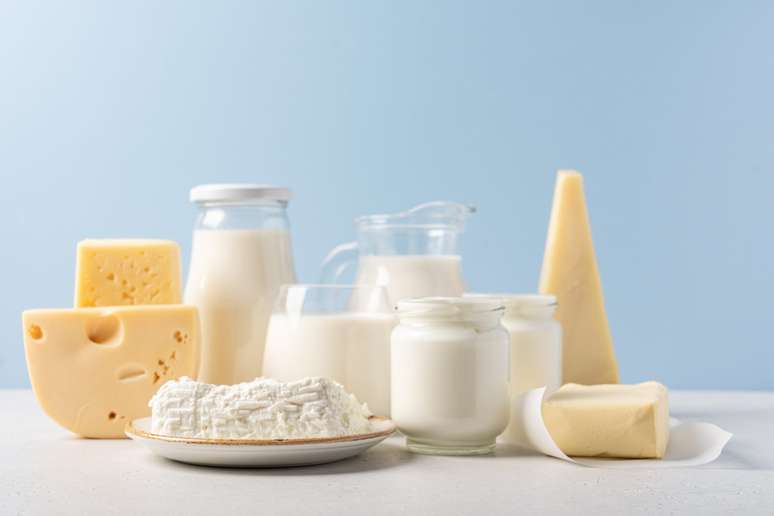Food and drink are our source of energy, health and even pleasure. And when we develop an allergy to some kind of food, many things in our body change, and with that, we have to learn to live in a new way. To understand more about childhood food allergies, we spoke to a nutritionist with a postgraduate degree in behavior […]
Food and drink are our source of energy, health and even pleasure. And when we develop an allergy to some kind of food, many things in our body change, and with that, we have to learn to live in a new way.
To better understand children’s food allergies, we spoke with the nutritionist specializing in child eating behavior and pediatric nutrition, Mariana Claudino, who clarified that the first step to identifying any type of food allergy is to contact a specialist. “Blood tests are important, but the diagnosis is complex, because they do not alone confirm or exclude food allergy. Investigating the clinical history is essential, since there are clinical reactions that vary, such as blood in the stool, low heaviness and diarrhea , or more severe reactions, such as anaphylaxis,” he explains.
(BOX) Is it possible to have an allergy to breast milk?
No, breast milk does not cause allergies. What usually happens is that the baby is allergic to proteins that the mother ingests (such as cow’s milk proteins). These proteins “pass” to the baby through breast milk.
Attention and care
Milk is part of the lives of the vast majority of people, both the drink itself and the various foods that contain it. If the baby is allergic to milk, it is necessary to act quickly and this indicates that breastfeeding women should change their diet. “If the baby has reactions that indicate an allergy to cow’s milk, the mother should, under the supervision of an allergist and nutritionist, eliminate milk and dairy products from her diet during breastfeeding, but never stop breastfeeding the baby. If the mother is unable to breastfeed or has no milk, she needs to have access to other types of milk, without cow’s milk proteins,” she says.
It is worth pointing out that 10% of preschool children suffer from transient allergies, but as they grow up they no longer suffer from allergies. “Most food allergies in childhood are transient. But many of them may not become tolerant and the allergy persists into adulthood.”
Predisposition to food allergy
According to Mariana, some studies show that environmental factors have had a direct influence on the increase in the prevalence of allergies to certain foods. These include excessive use of antibiotics, exposure to ultra-processed and transgenic foods, low breastfeeding rates and late provision of solid foods to infants.
Is it possible to prevent allergies?
Breastfeeding promotes the formation of the immune system and is a preventive factor, since breast milk acts by blocking food antigens. “Some research indicates that the type of microbiota of the newborn is fundamental in preventing the development of food allergies. A recent study showed the prevalence of food allergies in newborns born by planned or emergency cesarean section, compared to children born by vaginal delivery .this occurs due to the strong influence of the microbiome on the formation of the immune system,” he says.
Additionally, other studies work with evidence showing that reduced contact with microorganisms and infections in early childhood are directly linked to the increase in the prevalence of food allergies. “It is not advisable to offer foods other than breast milk or infant formula to infants under 6 months,” adds the nutritionist.
During pregnancy, the mother can also help prevent the baby from becoming allergic. Among the guidelines of World Allergy Organization (WAO) There is a suggestion to use probiotics for pregnant women at high risk of having allergic children. However, this guidance must be provided on an individual basis. “Furthermore, the pregnant woman’s diet plays a fundamental role in the formation of the baby’s microbiome and immune system: restrictive diets do not have a preventive protective effect against food allergies, on the contrary, they can damage the newborn’s immune response. pregnant woman You should not exclude cow’s milk, eggs, wheat and other allergens from your diet”, underlines Mariana.
Difference between food allergy and food intolerance
“The terms “food allergy” and “food intolerance” are confusing, especially when talking about cow’s milk. Many people say “lactose allergy” and this is incorrect. Lactose, which is the sugar in milk, does not cause allergy , since the development of symptoms of lactose intolerance does not involve the immune system. What causes an allergy are milk proteins, hence the term CMA (cow’s milk protein allergy). similar, the mechanisms are different”, explains the nutritionist. (BOX)
Phenylketonuria
Phenylketonuria is a disease linked to a rare genetic alteration (affects approximately 1 in 10,000 people) and involves protein metabolism. “A person suffering from phenylketonuria has changes in the function of a specific enzyme that processes the amino acid phenylalanine,” explains Mariana.
Newborns carrying the disease do not show symptoms at birth, but without adequate treatment the signs of the disease begin to appear in the first months of life, which can vary depending on the case. “These children cannot develop their neurological system if they are not treated properly. The damage resulting from the accumulation of phenylalanine leads to severe mental retardation, seizures and hyperactivity,” warns the professional.
Is there a cure?
Unfortunately there is no cure for the disease, but it is possible to cure it as long as the diagnosis is made as soon as possible, thus avoiding serious consequences on brain development. According to the nutritionist, screening for this disease in Brazil is carried out using the well-known “Pezinho Test”. The exam must be carried out between the 3rd and 5th day of the child’s life and, once the diagnosis is confirmed, it will be necessary to follow a special diet low in phenylalanine (present in foods that contain proteins) for life.
Source: Terra
Ben Stock is a lifestyle journalist and author at Gossipify. He writes about topics such as health, wellness, travel, food and home decor. He provides practical advice and inspiration to improve well-being, keeps readers up to date with latest lifestyle news and trends, known for his engaging writing style, in-depth analysis and unique perspectives.









